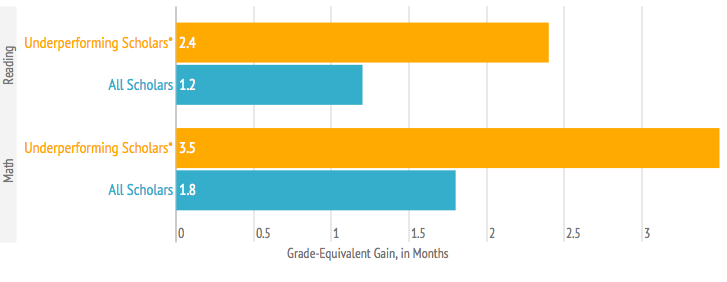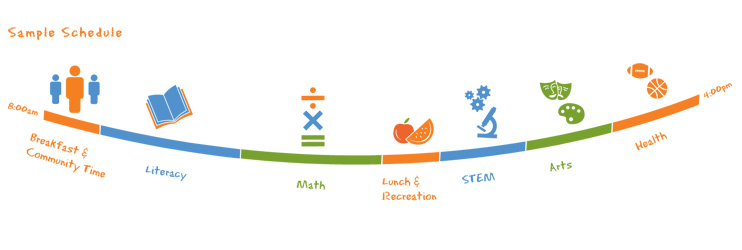Expanding
Learning Time
In a warm classroom at the Kenny School in Boston’s Dorchester neighborhood, eight BELL “scholars” discussed Langston Hughes’s poem “A Dream Deferred.” “Poems can be used as metaphors for the human experience,” explained Shevonne Commock, a BELL instructor. The class discussed civil liberties as defined in the first five constitutional amendments and the meaning of metaphors. Ms. Commock then asked them to “imagine what impediments would stand in your way if you’d been born during the civil rights era.”
Berline, a student who has participated in BELL programs for six years, raised her hand. “It’s an awesome poem,” she said. “It’s an inspiration.” Berline’s response to the multi-layered literacy lesson, and her understanding that Hughes is urging equality and opportunity for everyone, reflects BELL’s goals, too.
Created in 1992 by students and educators at Harvard, BELL (Building Educated Leaders for Life) began as a small community-based initiative. The plan was to expand learning time in Boston’s public schools, giving economically disadvantaged students a greater chance to compete and succeed with peers who had more access to after-school enrichment programs. Instead of heading home or to a playground at the end of the school day, BELL offered a far better option: stay at school longer and become a scholar.
Starting with 20 Boston children in its first year, BELL has now reached over 100,000 K–12 students in 21 cities, 12 states, and the District of Columbia, providing more than 20 million hours of instructional time, enrichment activities, field trips, and community service. BELL initially provided programming only during the school year, but now runs critically important multi-week summer sessions.
The Walmart Foundation recognized that BELL could deliver comprehensive, proven curricula to increase students’ outcomes, especially for literacy skills. With funding targeted at middle school summer programs, the Walmart Foundation helped BELL partner with school districts in Boston, Salem, and Springfield, MA; Baltimore, MD; Detroit, MI; New York City; San Jose and San Rafael, CA; Charlotte and Winston-Salem, NC; Hartford, CT; Chicago, IL; Orlando, FL; Newark, NJ; and Spartanburg, SC.









